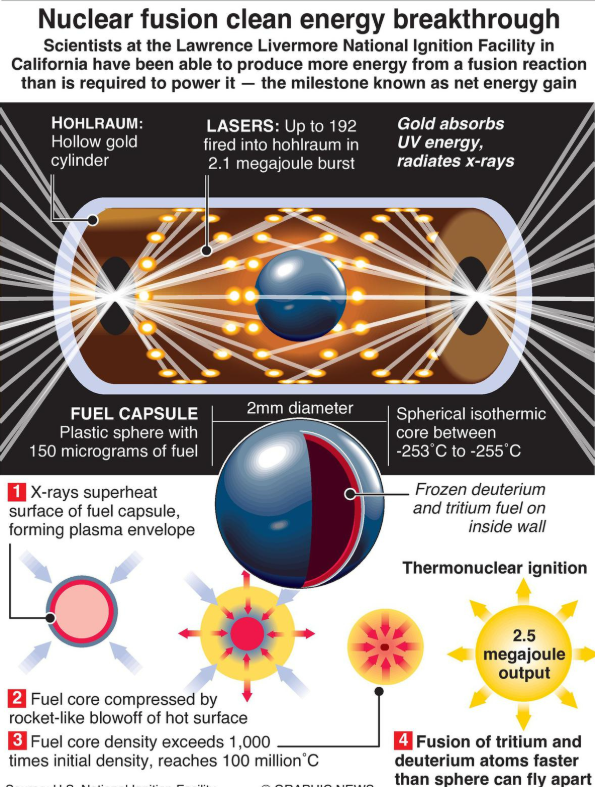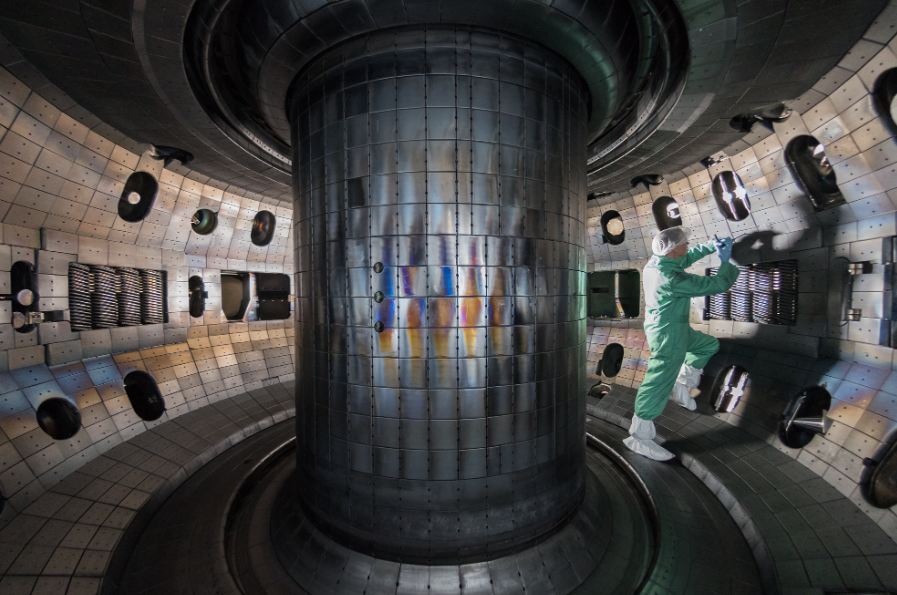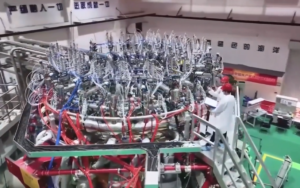Historic Fusion Energy Breakthrough Could End America’s Dependence on Fossil Fuels — and that future is now closer than ever. American scientists have achieved something previously thought impossible: a fusion reaction that produced more energy than it consumed. This landmark moment signals a seismic shift in how the U.S. could power itself — cleanly, affordably, and independently.
What Is Fusion Energy and Why Does It Matter?
Fusion energy is generated when two light atomic nuclei — typically hydrogen — combine to form a heavier nucleus, releasing tremendous energy in the process. This is the same process that powers our sun.
Unlike nuclear fission (used in current nuclear power plants), fusion:
- Produces no carbon emissions
- Creates no long-term radioactive waste
- Is based on abundant fuel sources like hydrogen
In short, fusion is clean, safe, and potentially limitless energy.What Exactly Was the U.S. Fusion Breakthrough?
At the Lawrence Livermore National Laboratory (LLNL) in California, a team at the National Ignition Facility achieved what’s called “ignition” — producing more energy from a fusion reaction than the energy put in to start it.

Fusion Energy Breakthrough, Key Details from the December 2022 Experiment:
| Metric | Value |
|---|---|
| Laser Energy Input | 2.05 Megajoules |
| Fusion Energy Output | 3.15 Megajoules |
| Energy Gain (Net Output) | ~54% more than input |
| Location | National Ignition Facility, USA |
| Significance | First-ever net energy gain in lab |
This was a world-first, and it proved that fusion ignition is scientifically possible.
How Will This Breakthrough Help America?
This isn’t just a win for science—it’s a potential turning point in America’s energy future.
Benefits of Fusion Energy for the U.S.:
- Reduces reliance on fossil fuels
- Strengthens national energy security
- Cuts greenhouse gas emissions
- Lowers future electricity costs
- Enables consistent, reliable power supply
The Department of Energy now aims to develop commercial fusion plants within the next decade, contributing directly to the U.S. goal of carbon-free electricity by 2035.
Fusion Race: How the U.S. Compares Globally
Other countries are also advancing fusion technology. For example:
- France (ITER Project): Holds the record for sustaining plasma for 22 minutes.
- U.K. and South Korea: Developing smaller tokamak reactors.
- China: Working on hybrid fusion-fission systems.
But the U.S. fusion ignition milestone gives it a decisive global lead in innovation, investment, and commercialization potential.
What Comes Next for Fusion Power?
With momentum building, private companies like Helion Energy, TAE Technologies, and Commonwealth Fusion Systems are joining forces with federal research labs.
Future goals include:
- Developing cost-effective fusion reactor designs
- Creating fusion pilot plants by 2030
- Scaling fusion energy to the national grid by 2040
If successful, fusion energy could reshape the entire U.S. economy and environment for the better.
From Fusion Breakthrough to Future U.S. Energy
[Fusion Energy Breakthrough]
|
--------------------------------------------------
| | | |
[Scientific Ignition] [USA Impact] [Global Race] [Commercial Future]
| | | |
Net Energy Gain Energy Security ITER, China Pilot Plants by 2030
Fossil Fuel Cut France Power Grid Integration
Clean Electricity Collaboration Nationwide Rollout
Conclusion: A Turning Point for U.S. Clean Energy
The historic fusion breakthrough isn’t just another experiment — it’s a tipping point. As America looks to reduce carbon emissions, end fossil fuel dependency, and build a secure energy future, fusion energy may be the key.
With government backing, private innovation, and global leadership, the U.S. is now closer than ever to realizing the promise of limitless, clean power.
If this progress continues, millions of American homes could be powered by fusion within the next 15 years, transforming the nation’s environmental and economic outlook forever.
[USnewsSphere.com / cbs]





